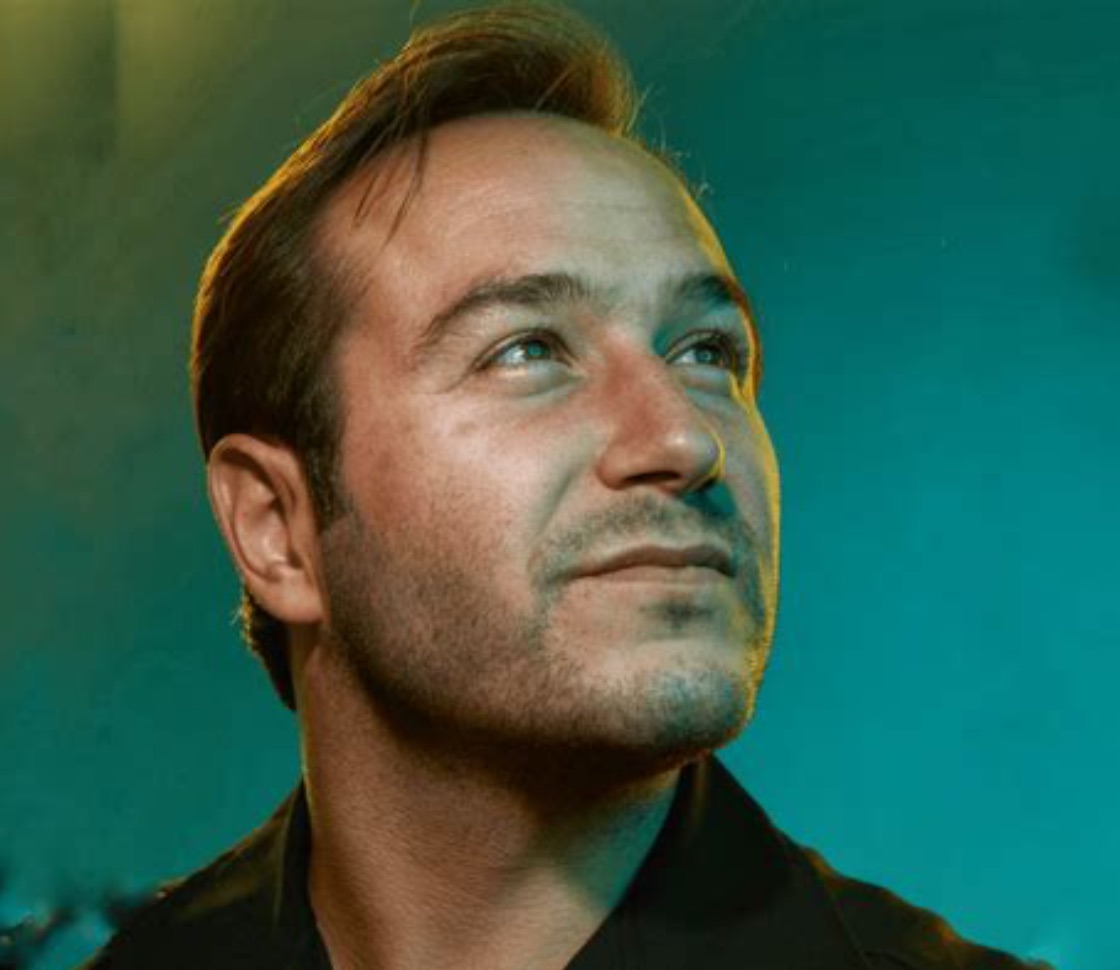Meet Generation T
That’s us...! Beyond hype and doom, the tech supercycle, the 'face supremacy', & the other GPTs. It’s the digest, AI Edition. 📨
As some of you may know, I'm quite the tech enthusiast. But should we be fearing it? In my latest Digest, I took inspiration from a fascinating interview with quantitative futurist Amy Webb. Based on her 2024 SXSW report, and her recent conversation with Brené Brown, I explore the hype or doom of the upcoming ‘tech supercycle’. Wherever you sit on this topic, whether you’re a tech fan or phobic, it’s crucial we all stay informed in the face of this technological revolution, which she is calling the Great Transition. As well as looking at the issues of regulation and ethical AI development, I share my favourite tools to boost work efficiency. It’s a bumper of an edition.
Are you sick of hearing about AI yet? Or finding out every company and service you use is trying to integrate AI, though you don’t get the point?
How much does AI matter? How much do we need to care?
If you’re familiar with this newsletter, you already know that I’ve felt technologically inclined since the fateful day when my older, half-brother, Michel, drove to our little corner of the Swiss country-wide and generously donated his old Atari computer to my younger brother and I. Later he bestowed upon us the great gift of a first-generation Apple Mac (oh how I wish I’d kept that machine!). My sole preoccupation with personal computing at the time (age 10 or thereabouts) was gaming. These pixelated 2D adventures were delivered via varied-sized floppy disks. Not the most magical delivery, but how much fun did we have nonetheless? Since those early days, I’ve had a friendly attitude towards tech.
Today, technology can be exciting and immersive, as much as it can be frankly annoying (like when it resists me and refuses to deliver an expected outcome). It can also be boring (I can’t be bothered with the VR headsets + how much reading does one want to do on a screen), and now… worrying.
Yeah.
Fresh from an inspiring conversation with Caitlin Krause, the globally-recognised experience designer, learning expert, author, and keynote speaker (who runs a course at Stanford University on technology and wellbeing), I cruised through much of April with a positive outlook on the future of immersive experiences and spatial computing.
With people like Caitlin advocating mindful design and leading with intention, ushering leaders in effective uses of XR (or extended reality), how could I see the future with anything but a rose-tinted headset?
Lo and behold, this positive mindset disintegrated not long after. The reason? I discovered the work of Amy Webb, quantitative futurist, legendary presenter at South by Southwest, and a recent guest of the Brené Brown podcasts.
According to Webb, we are Generation T. All of us alive are living through a pivotal moment she calls the “Great Transition”.
We are witnessing the world’s first technology supercycle, marked by the convergence of three revolutionary forces: artificial intelligence, the interconnected ecosystem of devices (often called the Internet of Things) and biotechnology. According to her research, think of the magnitude of expected changes as being like the Industrial Revolution on speed.
She said to Brown:
“Imagine if the steam engine, electricity, and the internet all happened at the same time.”
Apparently, that’s where we are. 😱
Whether you are interested in tech, AI, or spatial computing, or you suffer from severe tech phobia (you know who you are), DO make the time to read and/or listen to the opinions of Webb and the others featured below.
We are on the cusp of major change which will affect us all — our friends, family, our work, our financial future as much as our medical or health outlook. Beyond technological advancements, topics like regulation and accountability systems deserve everyone’s immediate attention. Everywhere around the world.
On a lighter note, I’ve prepared a short list of the most relevant and user-friendly AI services one could want to lean on at work.
Voila. With that said, please enjoy. If you find this useful, pass it along to friends. I cannot insist enough on how important it is to be literate about this stuff regardless of your industry or seniority level.
I’ll leave you with this thought from Ms Webb:
‘We don’t need ostriches right now.’
Let’s not put our heads in the sand.
“The biggest challenge to digital transformation is not technology. It’s people."

LISTEN TO
The futurist:
Don’t wait, just jump on this episode and discover Amy Webb on Brené Brown’s podcast here.
Then go down the rabbit hole like I did and watch Webb’s 2024 trend report from SXSW.
The themes that jumped at me include:
A currently missing accountability chain (obviously also true in our current social media landscape).
The future is not LLM’s (or large language models, but) but LAM’s (large action models).
Then again the future is … face supremacy.
Funding AI for growth and money-making instead of focusing on putting the right barriers in place, or how to incentivise ethical AI
The other GPT: general purpose technology
Generative biology
The good news: Webb doesn’t leave us hanging without advice. Discover her and her team's recommendations in the video or download the full 1,000-page report and key slides from Webb’s 2024 report on this dropbox link.
Go even further down the rabbit hole… Explore the history of Artificial Intelligence by reading the first chapter of Webb’s book, The Big Nine. Hint: there's a lot of philosophy in there and exploration on the meaning of consciousness, logic and language. Riveting.
The tech billionaire, founder-philosopher
Reid Hoffman is best known as the co-founder of LinkedIn though he is also a venture capitalist and is invested in AI directly. Hoffman studied philosophy at prestigious colleges in the US and the UK, making him a valid candidate for an exploration of the emerging generative AI with Krista Tippett at On Being. Listen here.
Hoffman is doing the podcast rounds given that he has recently published a new book, written with the help of GPT 4. Meant to be a collaboration, or apparently a conversation around what the future holds for AI and humanity, I have yet to read it to give you an opinion on it but you can check it out for yourself here.
If you’re interested in digging deeper into his views, here are another couple of good threads. Listen to Hoffman talk to Every about how philosophy prepares you to be a better founder, the co-evolution of humans and technology. I got a bit frazzled by this one but I was walking my dog. Watch here.
On his own podcast, Masters of Scale, you’ll find a selection of curated conversations on the topic of AI. Explore here. I listened to the episode with Intel’s Lama Nachman and Scale AI’s Alexandr Wang.
For full disclosure, the issues of privacy and government regulation fired me up so much that I found myself yelling at Hoffman as if I were in the same room as him and his panellists.
This left me thinking about how to get further involved in ethical AI. I’d love to hear your reactions, should you listen to any of the above.
The professor talking AI & Business
Wharton entrepreneurship professor and legendary AI expert Ethan Mollick speaks to Stanford lecturer Jeremy Utley about his new book "Co-Intelligence and delivers a tremendous amount of insights on how to think of using AI in business, approaching prompts, why pay for GPT4 and more. He also speaks about this all very fast, but it's really worth your time. Listen here.
READ
Talking about tech billionaires, the former Greek finance minister Yanis Varoufakis argues in his latest book that the likes of Apple and Meta are treating their users like modern-day serfs. He says we’re in the Age of Technofeudalism. FUN! Also, he has a point. A must-read, thanks to Wired.
GPT has been pushing our European buttons when it comes to privacy. Current news includes several GDPR complaints.
In lighter news, Nanni AI can decode the meaning of babies’ cries.
Apparently Chat GPT can help your team’s sales targets with better prompts.
TRY
Dip your toe in the AI pool by signing up for any of the tools below:
Seth Godin waxed lyrical about Claude AI, the ‘good’ counterpart built by Anthropic. It promises ‘less hallucinations’. Not available in Switzerland yet, which makes me mad.You try it and tell me what you think.
Read AI is meant to transform your meetings, emails, and messages and make you mega-efficient with AI-generated summaries, transcripts, playback, and highlights.
Or what about Spinach? It comes highly recommended by trusted sources who say its project management scope delivers great results.
For competitors, you can head to Fathom.video.
I’d already planned to try Otter.ai which a lot of my friends have been using. I’d love to tell you that the Zoom integration was seamless. Suffice to say, if you’re working solo and aren’t tech-friendly, get someone else to set this up for you. I’ll report back in a couple of weeks on the accuracy.
I’m also starting to use My Mind which could save me a lot of search time across notes and other docs.
For work/work, I’d suggest exploring a few of the below:
UXSniff
Hume
Lastly Google has launched some free courses on AI.
And the good folks at Section offer an AI for Business mini-MBA. I keep on saying I don’t want to sign up for it, but who knows…

To leave you on a high note:
I had the immense pleasure of talking to ‘gratitude-guru’ Chris Schembra a few weeks ago. It’s probably one of my favourite interviews of all time. He is an exceptional storyteller and it doesn’t hurt him to lean on on his Southern accent to deliver his wisdom. He started our conversation by reading aloud the introduction of his favourite book, the Prince of Tides. It's a true palate cleanser after all the AI stuff. I’d listen to it again for this alone.
Discover here. Enjoy!
